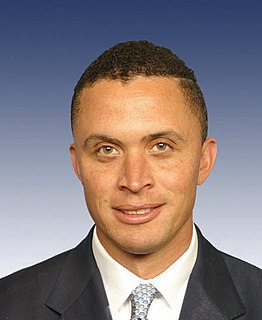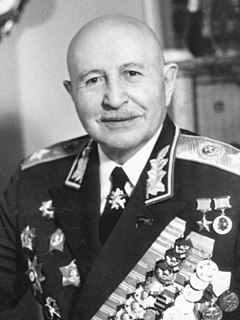A Quote by Lynn Nottage
I wouldn't say I see my work as having a political ideology. Lynn Nottage certainly has a political ideology. I think that the work is an extension of who I am, but I don't think that when I write the play I'm looking to push the audience one way or another.
Related Quotes
Every work of art (unless it is a psuedo-intellectualist work, a work already comprised in some ideology that it merely illustrates, as with Brecht) is outside ideology, is not reducible to ideology. Ideology circumscribes without penetrating it. The absence of ideology in a work does not mean an absence of ideas; on the contrary it fertilizes them.
Another thing I think should be avoided is extremely intense ideology because it cabbages up one's mind. You see it a lot with T.V. preachers (many have minds made of cabbage) but it can also happen with political ideology. When you're young it's easy to drift into loyalties and when you announce that you're a loyal member and you start shouting the orthodox ideology out, what you're doing is pounding it in, pounding it in, and you're gradually ruining your mind. So you want to be very, very careful of this ideology. It's a big danger.
The challenge in Iraq is to provide a security plan such that a political process can go forward. I'm sure you all are tired of hearing me say 12 million Iraqi voted. But it's an indication about the desire for people to live in a free society. That's what that means. The only way to defeat Al Qaida ideology in the long term is to defeat it through another ideology, a competing ideology, one that - where government responds to the will of the people.
Whatseems to take place outside ideology (to be precise, in the street), in reality takes place in ideology. What really takes place in ideology seems therefore to take place outside it. That is why those who are in ideology believe themselves by definition outside ideology: one of the effects of ideology is the practical denegation of the ideological character of ideology by ideology: ideology never says, 'I am ideological.'
We have won on the Arlov, Kursk, Belgorod, and Kharkov grounds. We won because the country was being defended not only by the army but by the entire Soviet people. The Socialist economy, Soviet political structure, and Marxist-Leninist ideology proved their unarguable excellence against the Fascist economy, Fascist political structure, and Fascist ideology of Germany.
As a political activist you run the risk of having to settle for one compromise or another in order to achieve your goals. Artists face the obvious accusation of elitism. The fundamental principle of my work is that it critiques capitalism in very specific ways. I am not interested in generalized political rhetoric. Instead of "aestheticizing" political issues, I try to challenge ingrained perspectives.







































